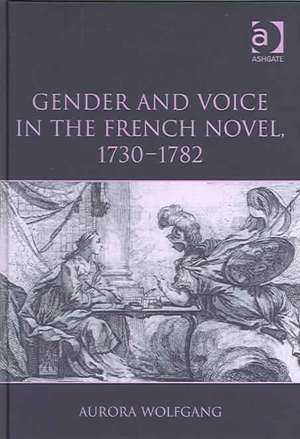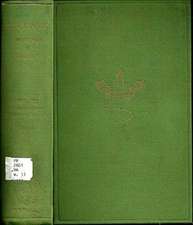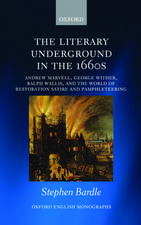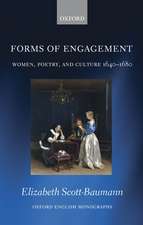Gender and Voice in the French Novel, 1730–1782
Autor Aurora Wolfgangen Limba Engleză Hardback – 28 oct 2004
Preț: 766.31 lei
Preț vechi: 1028.64 lei
-26% Nou
Puncte Express: 1149
Preț estimativ în valută:
146.67€ • 151.15$ • 123.83£
146.67€ • 151.15$ • 123.83£
Carte tipărită la comandă
Livrare economică 03-17 martie
Preluare comenzi: 021 569.72.76
Specificații
ISBN-13: 9780754637028
ISBN-10: 0754637026
Pagini: 224
Dimensiuni: 153 x 219 mm
Greutate: 0.57 kg
Ediția:New.
Editura: Taylor & Francis
Colecția Routledge
Locul publicării:Oxford, United Kingdom
ISBN-10: 0754637026
Pagini: 224
Dimensiuni: 153 x 219 mm
Greutate: 0.57 kg
Ediția:New.
Editura: Taylor & Francis
Colecția Routledge
Locul publicării:Oxford, United Kingdom
Cuprins
Contents: Introduction; Write for success: feminine-voice narratives in the literary field; The novelist turned 'furiously female': Marivaux's La Vie de Marianne; Words and worlds of difference: Graffigny's Lettres d'une Péruvienne; The discourse of authenticity in Riccoboni's Lettres de Mistriss Fanni Butlerd; Embodying the female voice: Laclos's Les Liaisons dangereuses; Epilogue; Bibliography; Index.
Recenzii
'Wolfgang's feminist readings of four major French novels are firmly grounded in cultural history and theory. A major contribution to our understanding of the history of the novel and the history of women, and a powerful intervention in continuing debates about the place of women and the role of gender in an emerging public sphere.' Dena Goodman, Professor of History and Women's Studies University of Michigan 'Wolfgang's evaluation provides exceptional character analyses, especially in the fresh and witty readings of Cécile and the Marquise de Merteuil.' Eighteenth-Century Studies 'This is a probing and finely researched study of four well-known novels that use a female style: two by male authors, and two by women writers... Wolfgang's work looks at often discussed aspects of the four novels and casts them into a new light. Her study, including an extensive bibliography, is an important addition to criticism ont the eighteenth-century French novel.' New Perspectives on the Eighteenth Century 'This is an important study of the engendering of literary style during the eighteenth century... this volume will quickly become required reading for scholars of the period and also for students on modules covering the literature of the eighteenth century.' Modern Language Review ’...a valuable contribution...well documented...very persuasive.’ French Studies
Notă biografică
Aurora Wolfgang is a Professor of French and Director of Women's Studies at California State University, San Bernardino, USA.
Descriere
Analyzing four best-selling novels-by both women and men-written in the feminine voice, this book traces how the creation of women-centered salons and the emergence of a feminine poetic style engendered a new type of literature in eighteenth-century France. The author argues that writing in a female voice allowed writers of both sexes to break with classical notions of literature and style so that they could create a modern sensibility that appealed to a larger reading public, and gave them scope to innovate with style and form. Through examination of Marivaux's La Vie de Marianne, Graffigny's Lettres d'une Péruvienne, Riccoboni's Lettres de Mistriss Fanni Butlerd, and Laclos's Les Liaisons dangereuses, she shows that in France, this modern "feminine" sensibility turned the least prestigious of literary genres-the novel-into the most compelling and innovative literary form of the eighteenth century.















